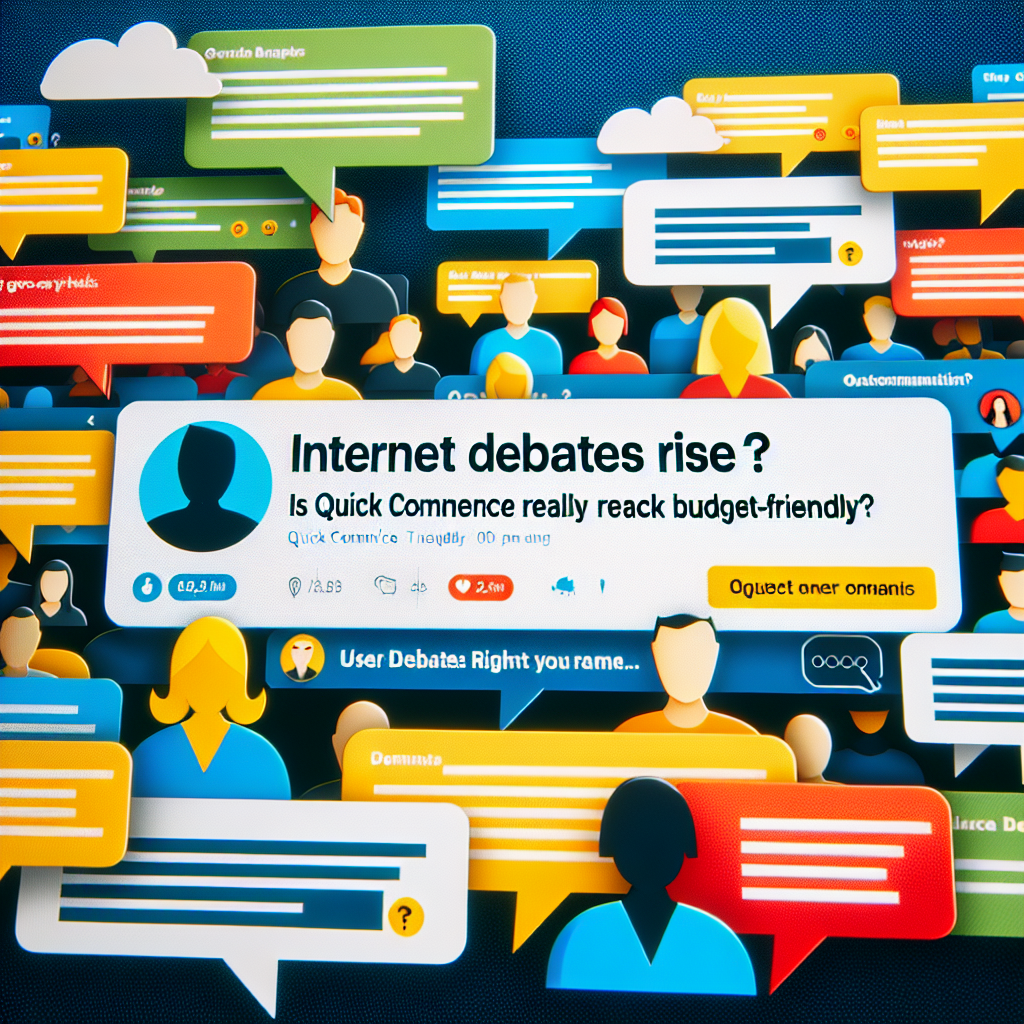“`html
Grocery Hacks: Is Quick Commerce Really Budget-Friendly? Internet Debates Rise
In recent weeks, a man’s grocery hacks have ignited a fiery debate on social media, with claims that quick commerce is cheaper than traditional grocery shopping. This has left many consumers wondering—are these quick commerce platforms really a budget-friendly alternative or just a marketing gimmick? In this blog post, we will explore the pros and cons of quick commerce and offer our own grocery hacks, cutting through the noise to help you make an informed decision.
Understanding Quick Commerce
Quick commerce, often referred to as “q-commerce,” is a term used to describe ultra-fast delivery services that promise to bring groceries and other essentials to your doorstep in under an hour. Apps like Instacart, Gopuff, and DoorDash have revolutionized the way we approach grocery shopping, but are they really saving us money?
The Case for Quick Commerce: Price Comparison
Proponents of quick commerce argue that these services can be cheaper than traditional grocery shopping for several reasons:
- Discount Promotions: Many quick commerce apps often provide users with discounts and promo codes that can significantly reduce the overall cost of groceries.
- Eliminating Impulse Buys: Shopping online can help reduce the tendency to make impulse buys, leading to a focused grocery list and potentially lower spending.
- Convenience and Time Savings: Although not a direct cost, the time saved with quick delivery can imply savings in other areas of life.
The Counterargument: Hidden Costs
Opponents of quick commerce insist that the convenience comes at a price. To better understand this, let’s break down some potential hidden costs:
- Delivery Fees: Using quick commerce apps often incurs delivery fees, which can add to the overall cost of grocery shopping.
- Markups on Products: Items available through quick commerce may come with higher prices than in-store equivalents.
- Subscription Fees: Some platforms require a subscription for premium services, which could negate any savings you save on groceries.
User Experiences: A Mixed Bag
User experiences further complicate the quick commerce debate. Some users have praised the service for its reliability and time-saving aspects, while others have reported dissatisfaction due to:
- Missing Items: Occasionally, users may receive substitutions or, worse, a lack of essential items altogether.
- Inconsistent Service: The quality of service can vary by region, leading to differences in user experience.
Grocery Hacks for Budget-Conscious Shoppers
Regardless of your stance on quick commerce, everyone loves a good grocery hack. Here are some strategies to save money while grocery shopping—whether online or in-store:
- Plan Your Meals: Take some time each week to plan your meals. This way, you can stick to your shopping list and avoid unnecessary purchases.
- Utilize Loyalty Programs: Many grocery stores have loyalty programs that offer exclusive discounts, cashback deals, or points toward future purchases.
- Buy in Bulk: For non-perishable items or products you use frequently, buying in bulk can often save you money in the long run.
- Check for Coupons: Before shopping online or in-store, check for available coupons on platforms like Coupons.com or Honey.
Conclusion: Your Money, Your Choice
The debate around quick commerce certainly raises valid points about budget-conscious shopping, and it ultimately boils down to personal preference and lifestyle. Yes, these services offer convenience—but is that worth the additional costs? Understanding both sides can help you make smarter shopping decisions.
As the grocery landscape evolves, so too should our strategies and approaches to saving money. Whether you choose quick commerce or traditional grocery shopping, remember that informed consumers always get the best deals. What are your thoughts on quick commerce? Are you a fan, or do you prefer the traditional grocery experience? Join the debate in the comments below!
“`
